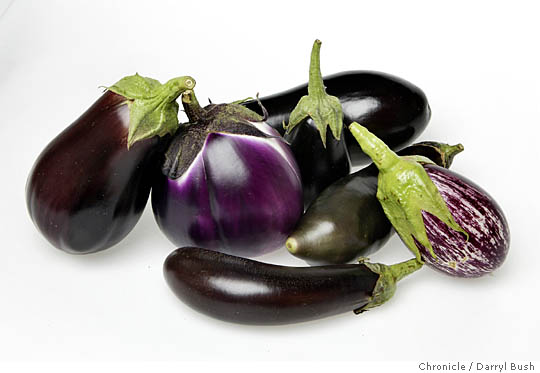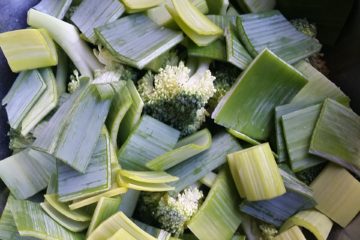Written by Logan Hansen, Residential Garden Program Development and Management Intern

Initially cultivated over 4000 years ago in India, known to the Italians as mala insana or “crazy apple”, eggplants are a nutrient-dense produce item that is much more than just an emoji. There are varieties of eggplant from all across the globe, many of which look different from the standard bulbous purple shape you might have come to expect, and the eggplant is a staple of many different cultural cuisines. While they are certainly an acquired taste for some, read on for some eggplant facts and recipes that may lead you to potentially gain a new appreciation for these plentiful purple perennials!
Eggplant Facts and Planting Tips

Pop quiz — is an eggplant a fruit or a vegetable? Contrary to popular belief, eggplants are considered to be a berry! They belong to the nightshade family and are most closely related to tomatoes, another fruit that loves to trick people into thinking it’s a vegetable. When it comes to planting eggplants, these versatile fruits need several months of weather no colder than 65 degrees Fahrenheit (18.3 degrees Celsius) in order to produce. Therefore, they are generally sowed indoors in the late spring months and planted in the summer. Eggplant prefer to be planted in loose, humus-rich soil in sunny areas that get some degree shade in the afternoon hours. Healthy eggplants will grow about 2-3 feet tall and wide, so they should be given at least that much space from other plants in your garden. Check out these resources from SF Gate and Sloat Garden Center for more information on growing eggplants in the Bay Area!
Eggplant Nutrition
Aside from adding beautiful color to your garden, eggplants also provide a variety of salient health benefits. They are high in fiber and offer essential vitamins and minerals such as copper, manganese, and B-6. In addition, a serving of eggplant contains a significant amount of antioxidants. Some studies have shown that due to the presence of these antioxidants, eating eggplant regularly can help prevent chronic diseases such as heart disease or even cancer. The skins of eggplants also contain nasunin, an anthocyanin that has shown to improve mental cognition and prevent memory loss late in life. Here’s an article from Medical News Today that delves into some more of the salubrious effects that adding eggplant into your diet can have!
Eggplant Recipes
The mushy consistency and bitterness found in eggplant keep the fruit from being accepted by many picky eaters, but with the right recipe these outcomes can be avoided. One key that I’ve personally found is before I bake eggplant, and after I dice it, I put it in a colander, sprinkle with salt, and leave to sit for around half an hour. This allows it to “sweat out” some of the bitterness. Here are some excellent eggplant recipes from around the web!




0 Comments